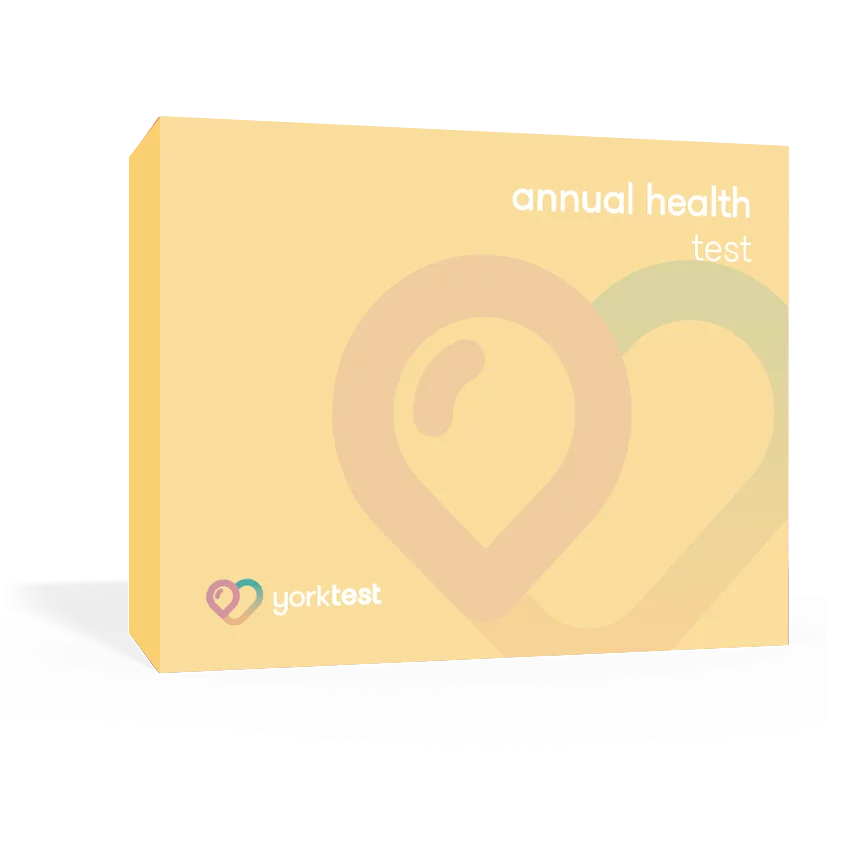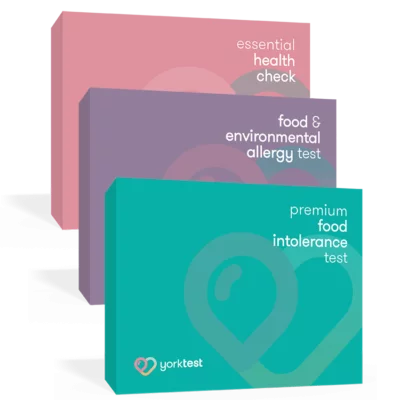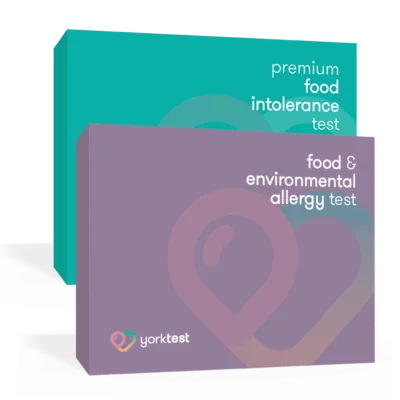Annual Health Test
Original price was: £250.£175Current price is: £175.

0% interest for 4 months with PayPal Credit. Learn more
PayPal Credit is like a credit card, without the plastic. It’s a credit limit that’s attached to your PayPal account which you can use for your online purchases. 0% interest for 4 months is available on single transactions of £99 or more. Find out more
- Add items to your Basket
- Select PayPal as your payment method at checkout
- Log into your PayPal account and chose PayPal Credit as your payment method or apply for PayPal Credit
Representive Example
Representive 23.9% APR (variable); Purchase rate 23.9% p.a (variable); Assumed credit limit £1200.
Credit subject to status. Terms and conditions apply. YorkTest acts as a broker and offers finance from a restricted range of finance providers.
PayPal Credit is a trading name of PayPal (Europe) S.á.r.l et Cie, S.C.A, 22-24 Boulevard Royal L-2449, Luxembourg.
Getting detailed health insights has never been easier. Our Annual Health Test measures 39 key health markers, covering: cholesterol, diabetes, vitamin D, vitamin B12, folate, liver function, iron deficiency, inflammation, and a full blood count. Forget about pricey trips to private clinics: an experienced phlebotomist comes to you! Simply book an appointment for whenever and wherever suits you. The phlebotomist will arrive, do the blood draw, then send your sample to a UKAS-accredited and CQC-compliant laboratory for testing. You will receive your results online within 7 days.
- Test for 39 different health markers
- Full blood draw collected by an experienced phlebotomist
- Flexible appointments – book a visit at home or to your workplace
- UKAS-accredited and CQC-compliant laboratory
- Provides hospital-standard, easy-to-read traffic light results
- Guidance to help you make effective lifestyle changes
- Access results anytime via your secure, personal Wellness Hub account
UK only. Customers must be aged 18 years or over to take this test. This test is not available to customers who are pregnant or breastfeeding.



















